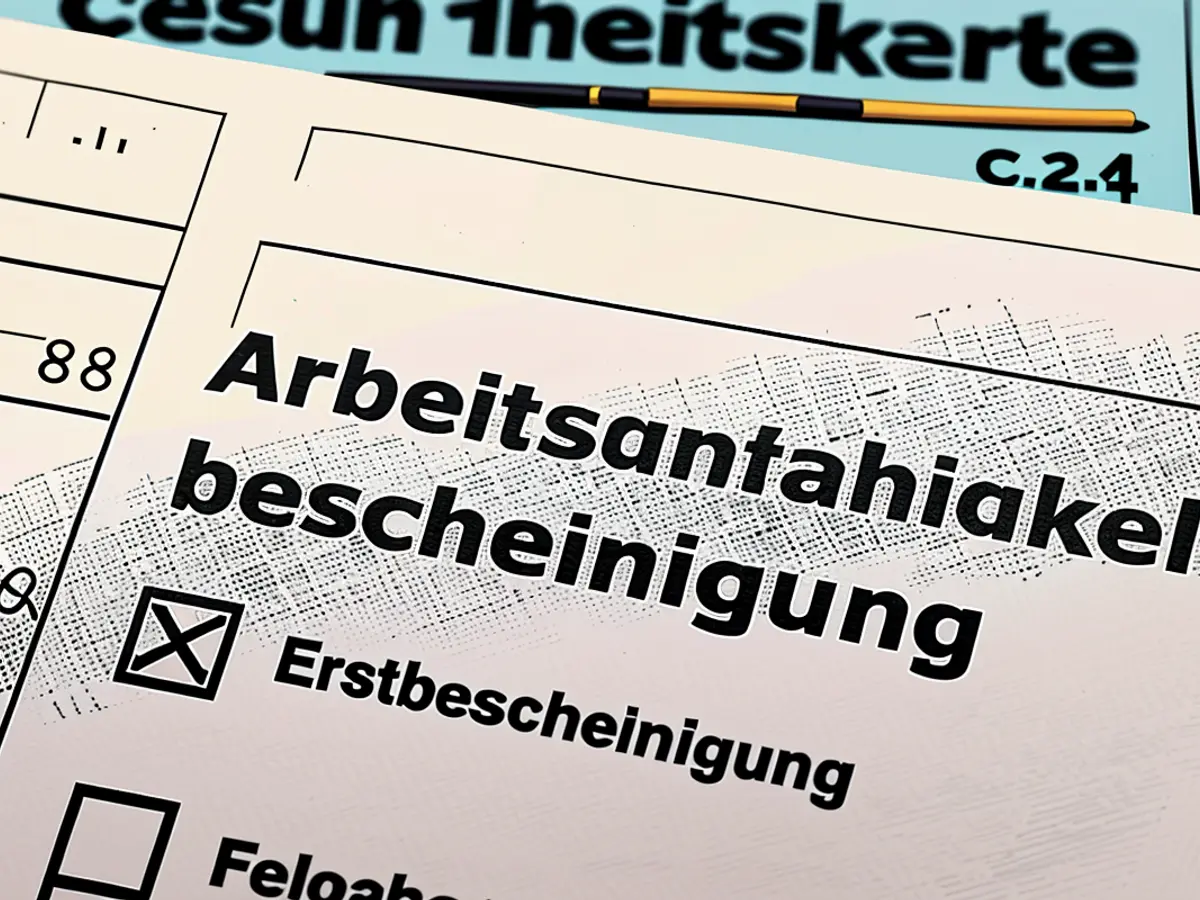Inquiring about the well-being of unwell employees who are working from home?
Most folks may not have issues with a bit of attention from their boss. However, showing up during sick days is usually seen as crossing a line, especially if it's suspected that the visit is to catch workers goofing off. Let's discuss the legality of this situation:
The drop-ins by business heads and HR representatives at sick workers at the Tesla plant in Gruenheide have caused quite a commotion. The workers felt unfairly accused of slacking off. Nevertheless, the higher-ups argued that the visits were solely for checking in and offering assistance if needed.
Regardless of whether this level of attention is perceived as sweet or intrusive, it's crucial to consider the legal aspects of these unexpected visits. Let's delve into it:
Can the boss actually visit sick workers at home?
Absolutely, they can. If the visit is consented to, there's no issue. Even if the employee isn't aware and the visit seems more about monitoring than care, it's still within the right. The involvement of the works council in the case of the Tesla employees' visit indicates this. Moreover, employers can hire private investigators to probe if an employee isn't genuinely ill, implying a "right to visit" for the boss.
Does the boss need permission to enter the apartment?
No, they can wait outside. According to Article 13 of the Basic Law, an employee's home is a highly protected personal sphere. Therefore, entering without consent is illegal and classified as a criminal trespass under Section 123 of the Criminal Code (StGB). Coercion under Section 240 StGB could also be considered.
Can the employer ask about the reason for the inability to work?
Yes, they can inquire. However, employees aren't obligated to disclose details about their illness, which is protected by privacy rights.
What steps can the employer take to dispel doubts about the inability to work?
In the event of illness, employees typically have to provide an illness certificate to the employer by the fourth calendar day at the latest. Employers can also demand this from the first day. Apart from this, the employer must be informed about the absence on the first day due to illness. Otherwise, a warning and subsequent termination may be imminent.
If the employees fail to submit the illness certificate on time, employers have the right to stop paying their salary. They can also withhold payment if they suspect the sick note is fake.
When are suspicions justifiable?
Suspicions about an employee's inability to work under Section 275 of the Fifth Book of the Social Code are valid if:
The individual is often or unusually briefly sick,The individual is usually sick at the beginning or end of the week.
What else?
Beyond that, the employer can request legally insured employees to obtain an expert opinion from the Medical Service to review their work incapacity from the health insurance company. However, health insurance companies can refuse such an assessment if the sick leave can be traced back to existing diagnoses.
What penalties do phony sick-leavers face?
Quite a few. If employees submit a fake sick note, they can be charged with a criminal offense. Submitting a false health certificate is punishable under Section 279 of the Criminal Code and can result in a jail term of up to one year or a fine. Fraud as a criminal offense is also applicable. Of course, those caught malingering can also be dismissed without notice, even without providing a fake sick note.
How can employers deter misuse?
By fostering a pleasant, rewarding work environment. If there are doubts about an employee's sincerity, a direct, friendly conversation should be the first approach. It's best to initiate this discussion at the workplace rather than at the employee's home. While they are not obligated to disclose medical information, sometimes a lot can be inferred from the person's reactions. Moreover, transparent conversations foster trust and can prevent further mistrust or misuse.
Given the discussion about the legality of unexpected visits by employers to sick workers, it's worth noting that being employed during sick leave is also a controversial issue.
Despite some companies having policies that permit employees to work from home while ill, consistently working during sick days could potentially lead to accusations of not genuinely being ill, and employers may take action accordingly.







